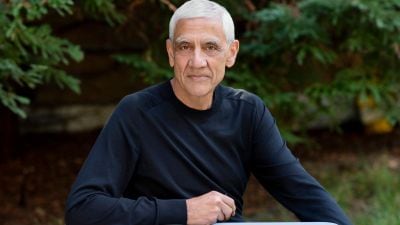Chasing a pot of gold: From ancestral house in Gujarat town to 4 ‘missing’ MP policemen
Four MP-based policemen have been accused of robbing 240 gold coins from four labourers. The workers themselves allegedly took the gold after they found it hidden inside a wall of a house they were demolishing in Gujarat
 Soeb Baliawala, a chicken shop owner and resident of Bander Road in Bilimora town in Navsari district of south Gujarat, had engaged Valsad-based contractor Sarfaraz Karadiya to demolish his ancestral house. (Express Photo)
Soeb Baliawala, a chicken shop owner and resident of Bander Road in Bilimora town in Navsari district of south Gujarat, had engaged Valsad-based contractor Sarfaraz Karadiya to demolish his ancestral house. (Express Photo)
This tale of theft is worth its weight in gold. Four tribal labourers from Madhya Pradesh on July 21 accused four policemen of robbing a bag of 240 sovereigns, bearing an engraving of King George V. The labourers, who were hired to demolish an ancestral house in south Gujarat in January, had themselves allegedly quietly pocketed the gold after they found it hidden inside a wall.
The police have recovered one coin that was taken by a labourer to a local jeweller to appraise its authenticity and value. Stating that the recovered sovereign is authentic, the police said efforts are on to locate the remaining coins, the four policemen and two of the four labourers. The words and images engraved on the recovered coin bear a striking resemblance to the ones on British and colonial coinage between 1911 and 1936, the reign of King George V.
According to the police, Soeb Baliawala, a chicken shop owner and resident of Bander Road in Bilimora town of south Gujarat’s Navsari district, had engaged the services of Valsad-based contractor Sarfaraz Karadiya to demolish his ancestral house in January. On July 17, Soeb left for the United States on a tourist visa. Multiple attempts to contact him for a comment remain unanswered.
It was while demolishing a wall that the labourers discovered the bag with gold coins dating back to 1922. Without informing the house owner or their contractor about their discovery, the labourers — Rajubhai, Dinshabhai, Bajari Bhaydiya (20) and her mother-in-law Ramku Bhaydiya (45) — completed the demolition work, took the treasure back to Baijda village in Madhya Pradesh and buried it in Ramku’s home. The double theft came to light after Ramku’s relative Shambhu Singh approached Sendhwa police station on July 21 to file a theft complaint against the four policemen.
Alirajpur Superintendent of Police Hansraj Singh told The Indian Express, “According to Ramku’s complaint, the labourers found the gold coins hidden in a wall while demolishing the house belonging to (Soeb’s father) Shabbir Baliawala in Bilimora. All four labourers decided to quietly distribute the coins equally among themselves. Back in MP, Ramku hid the coins in her house. A few days later, she went to a jeweller in Alirajpur with one sovereign to check whether it was genuine. That coin weighs 7.98 grams and contains 90 per cent gold. The estimated value of the coin is Rs 44,000.”
Singh added, “Slowly, the entire village learnt about the gold coins. The news also reached Sendhwa police station. On July 19, four policemen (Sendhwa station incharge Vijay Dawda, and constables Suresh Chauhan, Rakesh Dawer and Vijendra Singh) made a note in the station diary that they had received information regarding illegal liquor being stocked and sold from a house in Baijada village. They reached Ramku’s house at 10 am and carried out a ‘search operation for illegal liquor’. Both her husband Banshi and daughter-in-law were not at home at the time of this search. The policemen found a freshly dug cavity and the gold, and seized it. To cover their tracks, they went back to the police station and added a note in the station diary that no illegal liquor had been found in the village.”
A complaint was registered under IPC Sections 379 (punishment for theft) and 114 (abettor present when offence is committed) against the four policemen.
The SP added, “When we finally identified the policemen, we discovered they were all on leave. Primarily seeing their involvement in the incident, we suspended them on Sunday (July 23). We sent a team to Bilimora to check the details of the house and the financial status of its owners.”
Bilimora police inspector TA Gadhvi said, “We provided Alirajpur police all possible logistic support for their investigation in the case. So far, nobody has come forward to file a complaint regarding the theft of gold sovereigns.”
Contractor Karadiya told The Indian Express, “Soeb and his sister Hawaben Baliawala paid me Rs 2.10 lakh in January to demolish their ancestral house. We started the demolition on January 18 and finished on January 28. The labourers would work during the day and sleep there at night. After the work finished, they went back to their village.”
He added, “I didn’t know that they had found sovereigns in the house. I only learnt about it after the Bilimora police called to ask me for their details.”
Bilimora resident Juber said, “Soeb’s house was registered with the City Survey office in 1951. However, locals say the property is over 125-year-old.”
Mainak Kathariya, a numismatist (a collector or one who studies coins) said, “Such coins were made in the Bombay Mint in 1918. At that time, they were made of pure gold, and gifted during religious and social gatherings. Jewellery was also made from such sovereigns. If the words ‘one mohar’ or ‘two mohar’ are stamped on the sovereign, its value is usually between Rs 3-4 lakh.”









